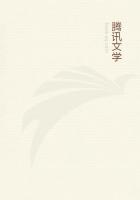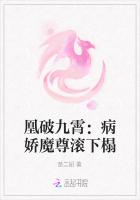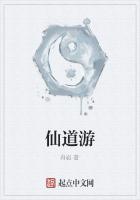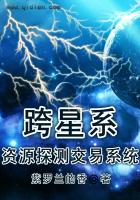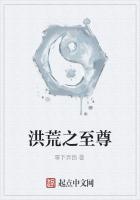When Mr. Cobden first appeared as a speaker, at a public meeting in Manchester, he completely broke down, and the chairman apologized for his failure. Sir James Graham and Mr. Disraeli failed and were derided at first, and only succeeded by dint of great labour and application. At one time Sir James Graham had almost given up public speaking in despair. He said to his friend Sir Francis Baring: "I have tried it every way--extempore, from notes, and committing all to memory--and I can't do it. I don't know why it is, but I am afraid I shall never succeed." Yet, by dint of perseverance, Graham, like Disraeli, lived to become one of the most effective and impressive of parliamentary speakers.
Failures in one direction have sometimes had the effect of forcing the farseeing student to apply himself in another. Thus Prideaux's failure as a candidate for the post of parish-clerk of Ugboro, in Devon, led to his applying himself to learning, and to his eventual elevation to the bishopric of Worcester. When Boileau, educated for the bar, pleaded his first cause, he broke down amidst shouts of laughter. He next tried the pulpit, and failed there too. And then he tried poetry, and succeeded.
Fontenelle and Voltaire both failed at the bar. So Cowper, through his diffidence and shyness, broke down when pleading his first cause, though he lived to revive the poetic art in England.
Montesquieu and Bentham both failed as lawyers, and forsook the bar for more congenial pursuits--the latter leaving behind him a treasury of legislative procedure for all time. Goldsmith failed in passing as a surgeon; but he wrote the 'Deserted Village' and the 'Vicar of Wakefield;' whilst Addison failed as a speaker, but succeeded in writing 'Sir Roger de Coverley,' and his many famous papers in the 'Spectator.'
Even the privation of some important bodily sense, such as sight or hearing, has not been sufficient to deter courageous men from zealously pursuing the struggle of life. Milton, when struck by blindness, "still bore up and steered right onward." His greatest works were produced during that period of his life in which be suffered most--when he was poor, sick, old, blind, slandered, and persecuted.
The lives of some of the greatest men have been a continuous struggle with difficulty and apparent defeat. Dante produced his greatest work in penury and exile. Banished from his native city by the local faction to which he was opposed, his house was given up to plunder, and he was sentenced in his absence to be burnt alive. When informed by a friend that he might return to Florence, if he would consent to ask for pardon and absolution, he replied: "No! This is not the way that shall lead me back to my country. I will return with hasty steps if you, or any other, can open to me a way that shall not derogate from the fame or the honour of Dante; but if by no such way Florence can be entered, then to Florence I shall never return." His enemies remaining implacable, Dante, after a banishment of twenty years, died in exile. They even pursued him after death, when his book, 'De Monarchia,' was publicly burnt at Bologna by order of the Papal Legate.
Camoens also wrote his great poems mostly in banishment. Tired of solitude at Santarem, he joined an expedition against the Moors, in which he distinguished himself by his bravery. He lost an eye when boarding an enemy's ship in a sea-fight. At Goa, in the East Indies, he witnessed with indignation the cruelty practised by the Portuguese on the natives, and expostulated with the governor against it. He was in consequence banished from the settlement, and sent to China. In the course of his subsequent adventures and misfortunes, Camoens suffered shipwreck, escaping only with his life and the manuscript of his 'Lusiad.' Persecution and hardship seemed everywhere to pursue him. At Macao he was thrown into prison. Escaping from it, he set sail for Lisbon, where he arrived, after sixteen years' absence, poor and friendless. His 'Lusiad,' which was shortly after published, brought him much fame, but no money. But for his old Indian slave Antonio, who begged for his master in the streets, Camoens must have perished.
(5) As it was, he died in a public almshouse, worn out by disease and hardship. An inscription was placed over his grave:--"Here lies Luis de Camoens: he excelled all the poets of his time: he lived poor and miserable; and he died so, MDLXXIX." This record, disgraceful but truthful, has since been removed; and a lying and pompous epitaph, in honour of the great national poet of Portugal, has been substituted in its stead.
Even Michael Angelo was exposed, during the greater part of his life, to the persecutions of the envious--vulgar nobles, vulgar priests, and sordid men of every degree, who could neither sympathise with him, nor comprehend his genius. When Paul IV.
condemned some of his work in 'The Last Judgment,' the artist observed that "The Pope would do better to occupy himself with correcting the disorders and indecencies which disgrace the world, than with any such hypercriticisms upon his art."Tasso also was the victim of almost continual persecution and calumny. After lying in a madhouse for seven years, he became a wanderer over Italy; and when on his deathbed, he wrote: "I will not complain of the malignity of fortune, because I do not choose to speak of the ingratitude of men who have succeeded in dragging me to the tomb of a mendicant"But Time brings about strange revenges. The persecutors and the persecuted often change places; it is the latter who are great--the former who are infamous. Even the names of the persecutors would probably long ago have been forgotten, but for their connection with the history of the men whom they have persecuted.
Thus, who would now have known of Duke Alfonso of Ferrara, but for his imprisonment of Tasso? Or, who would have heard of the existence of the Grand Duke of Wurtemburg of some ninety years back, but for his petty persecution of Schiller?

